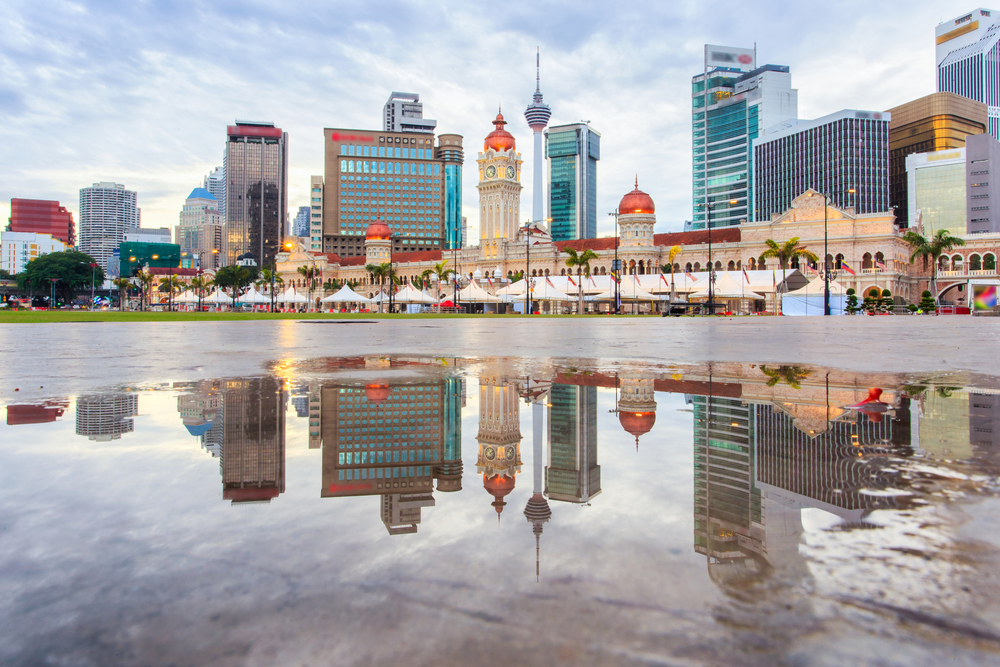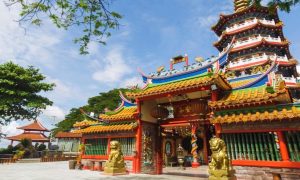Update, 13th June 2017:
Based on a bulletin released by the Royal Malaysian Customs Department, the Tourism Tax will come into effect starting 1st July 2017. The bulletin lays out the structure of the tax in detail and it’s a lot to read, so we’ve extracted the important bits for you here.
Rates
The Tourism Tax will be charged on tourists staying at accommodation premises on a per room, per night basis in the following rates:
- five star: RM20/room/night
- four star: RM10/room/night
- one, two and three star: RM5/room/night
- one, two and three Orchid: RM2.50/room/night
- non-rated accommodation premises: RM2.50/room/night
According to the bulletin, a tourist is any person, Malaysian or otherwise, visiting any place in Malaysia for pleasure, recreation, holiday, culture, religion, visiting friends or family, sports, business, meetings, conferences, seminars or conventions, studies or research, or any other purpose not related to an occupation that is remunerated from the place visited.
Type of places that will begin collecting the tax
The bulletin also specified the type of accommodations that should be registered to begin collecting the tax. basically, it’s any hotels, inns, hostels, boarding houses, and lodges that offer accommodation for tourists. Premises that are exempted from registration and cannot impose the tourism tax are homestays, kampung stays, premises established and maintained by religious institutions not for commercial purpose, premises with fewer than 10 rooms, and premises operated by the government.
According to this, it seems that Airbnbs won’t be charging the tax, so the prices should remain the same. Consequently, this tax will surely affect the traditional hospitality industry with more people likely to opt for Airbnbs instead when they travel.
For the good of tourists in Malaysia
Finally, the bulletin reiterated the reasons for the tax, that is for the development of the tourism industry – enhancing infrastructure and facilities as well as tourism promotional activities and campaigns for the country. The tax collected will also be channelled into protecting and preserving the environment, culture, and heritage of Malaysia.
So if you’re planning a holiday in Malaysia for after August 2017 onwards, be sure to increase your budget a little to take this tourism tax into account.
7th April 2017:
On 5th April, the Malaysian Parliament passed the Tourism Tax Bill 2017. The bill, which has the hotel and tourism industry abuzz with chat at the moment, states that a tax shall be charged on tourists staying at any accommodation, with the exception of:
- homestays and kampung stays registered under the Malaysian Ministry of Tourism,
- premises managed by educational institutes,
- and premises used for non-commercial purposes (i.e for training or religious purposes).
The bill stipulates that the tax is to be collected from guests on a per night per room basis. Interestingly, when the bill was tabled in Parliament and read for the second and third times, the rates were not discussed. Instead, it was noted that the fixed rate will be discussed at a later stage by the finance and tourism ministers.
Expected revenue, but no rates
Malaysia Tourism Infographic by siwillmore
It is somewhat perplexing that the rates weren’t announced at this point because according to a Bernama report, Tourism Minister Nazri Abdul Azis stated that the government could collect about RM654.2 million from the Tourism Tax based on a 60% occupancy rate of the 11 million ‘room nights’ in Malaysia, and a whopping RM872.82 million if the occupancy rate is at 80%. But how would he know the expected earnings of the tax if the rates had not already been discussed?
Still, in the two days since the bill was passed, the tax rates have remained elusive. According to a report by Free Malaysia Today, the president of Malaysian Association of Hotels (MAH), Cheah Swee Hee, specified that the tax rate would vary depending on hotel ratings with RM2.50 being levied per room for non-rated hotels, while two-, three-, four-, and five-star hotels would be levied RM5, RM10, RM15, and RM20 respectively per room per night. This was based on briefings they’ve had with the Ministry of Tourism.
At the same time, Hamzah Rahmat, President of the Malaysian Association of Tour and Travel Agents (MATTA) noted that they have not been briefed on the finalised mechanisms for the tax. Presumably, this is because the Ministry of Tourism and Ministry of Finance have yet to come up with a final outline.
Impact on the industry
Taking a step back from the rates of the tax, many of the hotels we’ve spoken to have voiced their concern about the impact this tax will have on tourism. Once these rates are finalised and implemented, room rates and tour rates will inevitably increase.
There’s also the issue of state-level tourism levies that are already in place in Melaka, Penang, Kuala Lumpur, and Langkawi at specific rates per night based on hotel ratings. When combined with this new Tourism Tax, room rates in these four states will soar, affecting the state’s tourism industry as visitors might decide to travel to other states where they’d only have to pay one levy instead of two.
Also, it’s still unclear if the nationwide tax will also be applied to accommodations booked via AirBnB or if the tax will be applicable to only foreigners or all guests including locals.
Crunching numbers
We’re also wondering about how many hotels, motels, inns, resorts, etc. would be involved in this? How many hotels rooms are there in Malaysia, anyway? According to statistics by Tourism Malaysia, there are about 304,721 rooms (it is unclear if the numbers are just hotel rooms or includes homestays also) and 4,799 hotels in Malaysia as of 2015. The occupancy rate as of 2015 was 61.2% and on average, the length of stay is 5.5 nights.
At this point, simple math tells me that according to the numbers put forth by the Minister of Tourism, a 60% occupancy rate of 11 million ‘room nights’ will generate approximately RM654.2 million. So, on average the tax rate would be about RM99 per room per night. (I’m not a mathematician, so if someone can help me with this, please do!). But that number is way off when compared to the rates stated by MAH President, Cheah Swee Hee.
UPDATE: We we looked at the numbers again and come up with better math. An 80% occupancy rate of 304,721 rooms means that there would be 243,777 rooms occupied. Let’s assume these numbers stay the same for an entire year. At a rate of RM10 per room per night, that would give us ~RM2.44 million per day. So in a year (365 days), the revenue generated from this tax would be about RM889 million. That’s not far off from the Minister of Tourism’s number of RM872 million at 80% occupancy. So perhaps the rate he’s used for his calculations are around RM10 per room per night.
We can’t be sure until the actual rates are announced, though. So the only thing we can do right now is wait for the relevant authorities to announced the rates for this Tourism Tax. We’ll update this article as the story unfolds. In the meantime, if you have any information about the Tourism Tax or if you have any thoughts on the matter, leave us a comment down below!



















